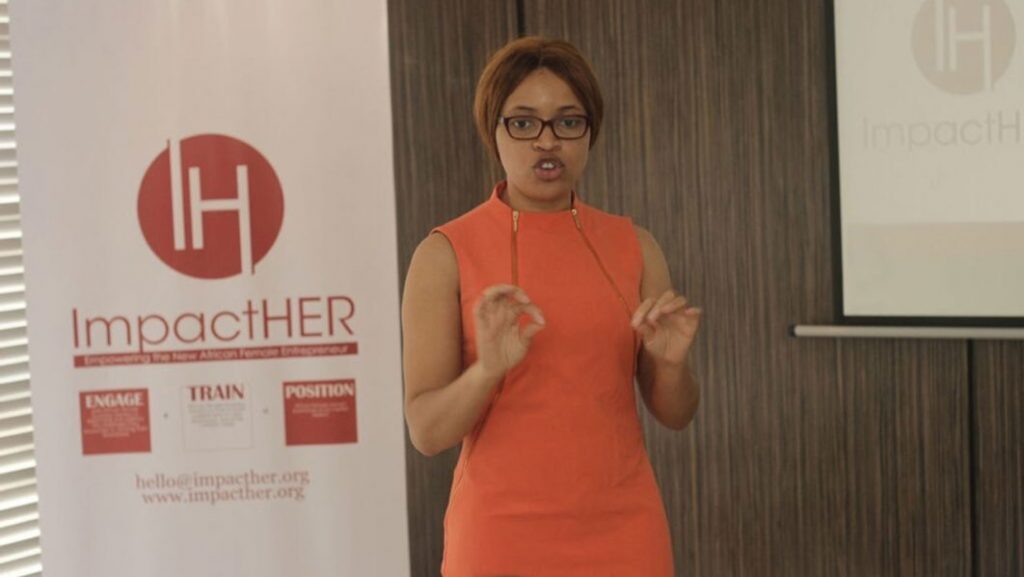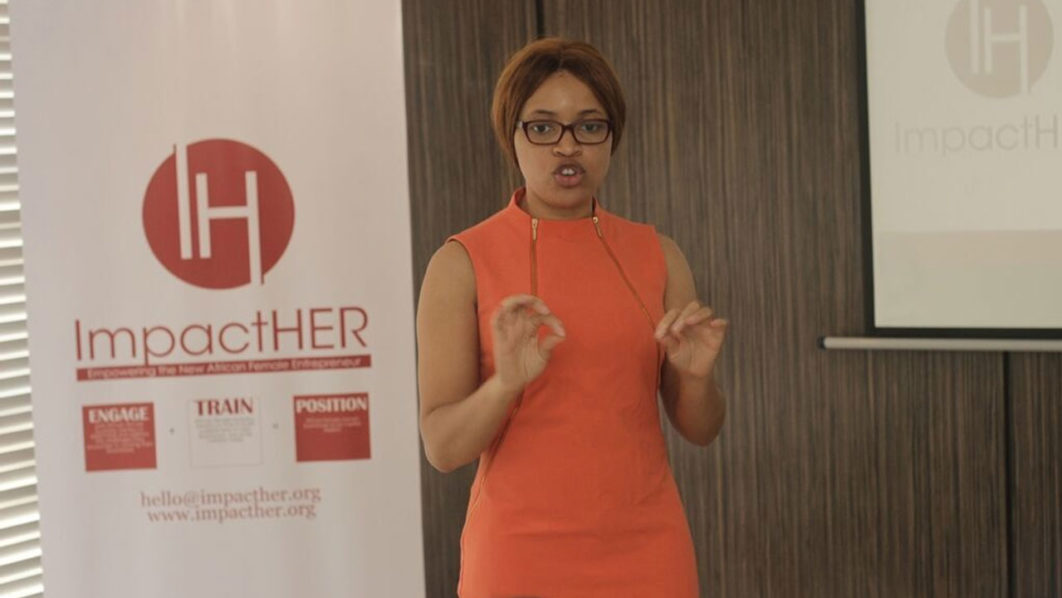

Businesses run by African women have been disproportionately affected by the Covid-19 pandemic, and are in dire need of financial help, according to a new study released Wednesday.
The findings of the survey were shared by Efe Ukala, the founder of ImpactHer, a nonprofit organization that helps African female entrepreneurs access funding and other tools to scale up their businesses both locally and globally.
“In 2020, there was a lot of pivoting that had to be done to ensure that all those businesses we we’re working on would not turn into a statistic,” said Ukala, a lawyer who is also a vice president and assistant general counsel at JPMorgan Chase, New York.
Ukala was speaking at a virtual conference hosted by Global Minnesota in partnership with Team Women in celebration of International Women’s Month.
Funding for female owned businesses is a challenge globally, particularly in developing nations. The International Finance Corporation, a member of the World Bank, estimates that there is a $300 billion financing gap in formal female-owned businesses, and more than 70 percent of them have inadequate or no access at all to financial services.
African women are more likely to be self-employed than women from any other continent. However, according to the World Bank, female led enterprises in Africa are 38 percent less profitable than their male counterparts. The organization said the gap in financial capital is large contributing factor, with male owned enterprises having as much as six times more capital than those led by women.
To properly diagnose the needs of businesses run by African women, ImpactHer launched a survey to collect data on the effects the pandemic has had on them, Ukala said. She said she was inspired to create ImpactHer as a solution to a global issue she observed through her work in the finance industry. In her profession as a private equity attorney, Ukala said she noticed a lack of female representation in her pool of clients.
“While doing a lot of this work, I noticed most of the companies we were talking to at the time are male led businesses,” she said.
Ukala decided to conduct personal research on her observations and discovered that this was a global issue that had been well documented.
“I decided to do something to help move the needle a little bit,” she said.
ImpactHer works to engage with African female business owners to help them address the challenges they face in running their businesses. The organization then trains the entrepreneurs on how to build scalable ventures to secure funding from investors.
Since its founding in 2017, ImpactHer has trained more than 17,000 female entrepreneurs across 52 African countries. It has teams of trainers based in Nigeria, Kenya, and the United States.
Ukala said her survey discovered that 80 percent of female owned businesses had been partially halted due to the pandemic and half of those enterprises had reduced their employees’ hours. The survey also revealed that a more than 90 percent of the businesses needed short term financing to stay afloat during the pandemic. In addition to the economic impact, some owners also needed mental support from the psychological effects of the pandemic.
After analyzing the survey’s findings, ImpactHer took the initiative to ensure African female owned enterprises received adequate support to help them recover. The organization sent policy recommendation letters to presidents of the 30 countries represented in the survey, as well as to the African Union. The goal was to advocate for gender specific and inclusive stimulus packages to ensure that female business owners, who were disproportionately affected by the pandemic, were able to access economic relief. ImpactHer also advocated for reduced collateral requirements to make it easier for female entrepreneurs to access financing from African banks as well as reduced interest rates.
Ukala said during the pandemic, the organization decided to increase the amount of services it offered. It provided free website creation to 500 businesses as well as marketing consultation and mentorship. ImpactHer was also able to help over 4,000 businesses transition to the digital world by providing technical support and tools needed to digitally launch and sustain their enterprises. The organization was able to secure over $500,000 in financing for small businesses.
Hiwot Tsegaye, the owner of Book a Leather, a leather goods company in Ethiopia, said her business came to a complete halt as the country shut down to curb the spread of the coronavirus.
She said she struggled to find money to pay for her expenses.
“ImpactHer helped us by working on our website, and teaching us how to develop [and] how to work with other markets, and how to increase our sales,” Tsegaye said.
After working with ImpactHer, Tsegaye was able to sustain her business and even increased revenue by 25 percent. That inspired her to become an ImpactHer ambassador working to help other women in Ethiopia to utilize the organization’s resources to grow and expand their businesses.
Ukala said ImpactHer’s team of mentors and advisors were chosen for their professional expertise, commitment, and personal character. Organizational leaders look for individuals who are eager to share their counsel in a kind and respectful manner.
“We never look down on a woman unless you’re looking to admire her shoes,” Ukala said. “I can envision a world where we are all connected as vendors and suppliers to each other.”
To access ImpactHer’s resources individuals can contact the organization directly through their website. To learn more about ImpactHer and ways you can partner with the organization you can visit their site.
About Cynthia Simba, Mshale Reporter
Cynthia is a graduate of the University of Minnesota School of Journalism. She has interned at Mshale and Voice of America and previously worked at the Minnesota Daily. She recently returned from Seoul, South Korea where she was an English educator.











